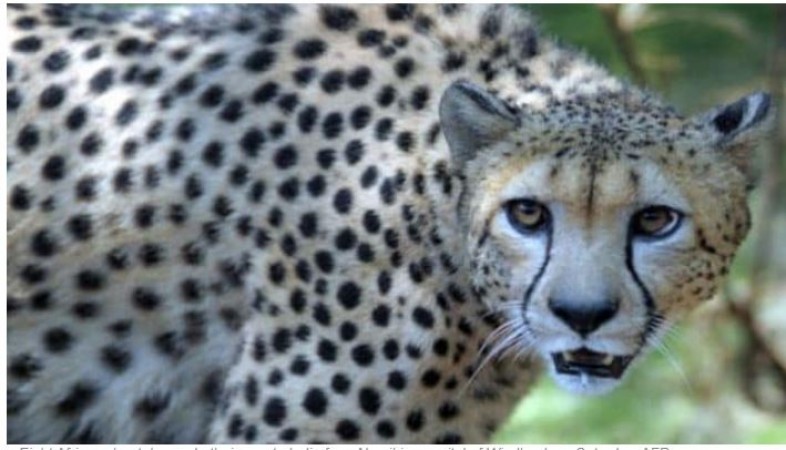
BHOPAL: The return of cheetahs to Indian soil after seven decades and the move will lead to restoration of forest and grassland ecosystems, said Prime Minister Narendra Modi.
The Prime Minister released the big cats viz. 5 male and 3 female, brought from Namibia, were released into the Kuno National Park in Madhya Pradesh as part of an effort to save the ecosystem and wildlife.
Cheetahs had become extinct from the country in 1952, but for decades, no fruitful effort was made to rehabilitate them, the PM said. As we commemorate "Azadi ka Amrit Mahotsav," the nation has recommenced its efforts to rehabilitate cheetahs. He claimed that before seeing cheetahs at Kuno National Park , tourists and wildlife enthusiasts will need to wait a few months.
The Prime Minister said, "Reintroducing cheetahs to India will aid in the restoration of open forest and grassland ecosystems and also result in improved livelihood prospects for the local people." The first intercontinental large wild carnivore relocation initiative is called "Project Cheetah."
Notably, the occasion was planned to coincide with Prime Minister Modi's 72nd birthday on September 17.
The felines will reside in a designated area of Kuno National Park for two weeks before being let loose in the park.
Cheetahs will reside for two weeks in a designated location under Kuno National Park . They will be reintroduced into the park once they have adapted to the local climate. Every cheetah has a specific radio-collar fitted to their necks so that it is possible to track their movements. A specialised joint team of experts in African and Indian wild animals would daily check their well-being and movement, the senior forest official said.
Kuno National Park is the new home of the eight cheetahs and is spread out over 748 square kilometres in the vast forest environment of Madhya Pradesh. Notably, it is a short distance from the Sal forests of Koriya in Chhattisgarh, where the native Asiatic Cheetah was last seen approximately 70 years ago.
The timelinefor these surveys was between 2010 and 2012. It was later discovered that Kuno was the ideal location. According to a study by the Wildlife Institute of India and Wildlife Trust of India (WTI) based on climatic factors, prey densities, predator populations, and historical range, it was the most favoured habitat.
Kuno is perhaps one of the rare wildlife places in the nation where 24 or so settlements and their domesticated cattle were completely relocated from inside the park decades ago. The earleir settlement locations and their agricultural areas are now managed as savannah habitats since grasses have occupied them.
According to the government's proposal, Kuno presents the opportunity to house four huge felines in India, including tigers, lions, leopards, and cheetahs, and to ensure their past coexistence. Although Gujarat is home to the only remaining population of lions, Kuno was first suggested as a potential secondary habitat.
There are a lot of leopards in the forest, with a density of about nine leopards per 100 square kilometres. This is still a concern because the much stronger leopard has an advantage over the skinny cheetah, whose major strength is its breakneck speed.
Mangubhai Pate, the governor of Madhya Pradesh, Shivraj Singh Chouhan, the chief minister, and the union ministers Narendra Singh Tomar, Bhupender Yadav, Jyotiraditya M Scindia, and Ashwini Choubey were among those present on the occasion.
The Madhya Pradesh Chief Minister Shiv Raj Singh Chauhan on Friday had said, "We were a tiger state, a leopard state and now becoming a Cheetah state."